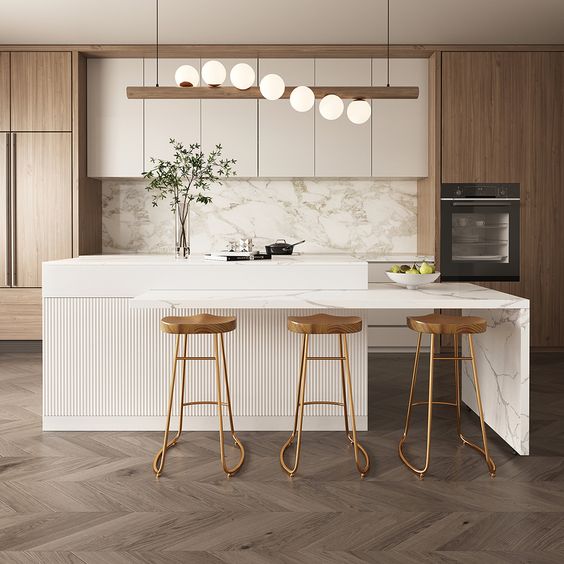The kitchen is the heart of every home, and during construction, renovation, and design, it should receive careful attention. The fundamental solution to kitchen design is to combine functionality and aesthetics. Below are the key elements of kitchen design:
1. Ergonomics: Ergonomic design is essential for comfortable and efficient work in the kitchen. Proper planning of distances between work areas such as the refrigerator, stove, and sink is necessary.
2. Storage: Sufficient storage space keeps the kitchen organized. Cabinets, shelves, and drawers are important for keeping kitchen items tidy.
3. Lighting: An adequate lighting system makes working in the kitchen easier. Task lighting, general lighting, and decorative lighting are the three main types of lighting.
4. Ventilation: An effective ventilation system is necessary to remove steam, smoke, and odors produced during cooking in the kitchen.
5. Material Selection: Choosing durable and easy-to-clean materials for surfaces such as cabinet countertops, doors, and kitchen floors is important.
6. Color and Style: The choice of color and style in kitchen design should be compatible with personal tastes and the overall decoration of the home.
7. Safety: Rounding sharp corners, using non-slip floors, and using child locks are safety measures that increase kitchen safety.
8. Workspace: Adequate countertop space provides the necessary workspace for cooking and food preparation.
9. Energy Efficiency: Energy-efficient appliances and lighting options help reduce energy consumption in the kitchen.
10. Personal Touch: Adding personal touches to kitchen design can make the space more special and inviting.
These fundamental elements are important considerations in kitchen design. By considering these elements, you can create a functional and aesthetically pleasing kitchen.




No comment